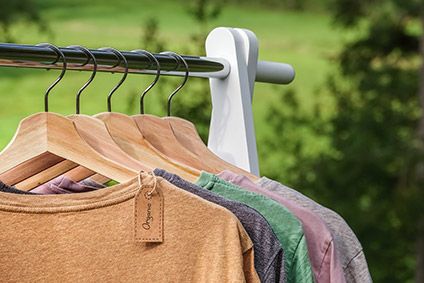
The Norwegian Consumer Council, together with the Dutch Authority for Consumer and Markets (ACM) have issued joint guidance around the use of the Higg Materials Sustainability Index (Higg MSI) following the programme’s suspension by the SAC earlier this year after the watchdogs deemed it insufficient in supporting brands’ environmental claims.
The background
In June, the CEO of the SAC Amina Razvi, confirmed the decision to “pause the consumer-facing transparency programme globally” as it works with the Norwegian Consumer Authority (NCA) and other consumer agencies and regulators to better understand how to substantiate product-level claims with trusted and credible data.
It came after the Norwegian Consumer Agency (Forbrukertilsynet) said it believed Norrøna is “breaking the law” in marketing clothes as environmentally friendly and it issued a warning to H&M Group against using the same type of environmental claims. The Norwegian Consumer Agency has concluded that this tool from the SAC is “not sufficient as a basis for the environmental claims they have used in marketing.”
Subsequently, the SAC met with the Norwegian Consumer Authority (NCA) for what it said was an open and constructive discussion focusing on the transparency programme which was designed to test and improve how brands may communicate environmental information to consumers to prevent “greenwashing”.
The latest
The ACM and Forbrukertilsynet have now issued guidelines for the clothing sector regarding the use of the SAC’s Higg Index in their marketing communications.
Edwin van Houten, director of ACM’s Consumer Department, says: “We find it positive that the clothing industry is committed to making the environmental impact of its materials more transparent for consumers. This helps consumers make more sustainable choices. It is important that they do so properly so that consumers are not misled. With these guidelines, we explain how businesses can do just that”.

US Tariffs are shifting - will you react or anticipate?
Don’t let policy changes catch you off guard. Stay proactive with real-time data and expert analysis.
By GlobalDataTrond Rønningen, director of the Norwegian Consumer Authority, adds: “It is positive that the textile industry wants to display credible data about the materials used in garments in their marketing to consumers. However, it is important that any claims about the environmental impact of garments and textiles are correct. Such claims must be substantiated by correct and sufficient data, and not presented in a misleading way.”
Specifically, the guidelines for the SAC’s Higg MSI programme suggest:
- Businesses that use the Higg MSI for its sustainability claims about materials should clearly indicate that this concerns general, average data that have no direct link to the production process of that specific product;
- Businesses should indicate that a comprehensive impact analysis of the used materials has not been made, but rather an impact analysis for four categories, and that this is a ‘cradle-to-gate’ analysis (which is a sustainability impact analysis from production to sales);
- In addition, it should be clear to consumers that the Higg MSI only compares the environmental impact within a single type of material, not between materials. This means that the impact of organic cotton is compared with conventional cotton, and not with polyester, for example;
- Finally, the underlying data must be up-to-date and be validated by a third party.
However, key to the guidance is that it is based on the authorities’ interpretation of current EU law, but is not a legally binding ruling.
SAC response to Higg MSI guidelines
In an email to Just Style, the SAC said the Higg MSI consumer-facing transparency programme would remain paused while it “works on solutions”.
“We’re working through crucial insights and learnings from the pilot to inform a repositioning of the program to ensure it is driving a positive impact,” a spokesperson said.
The organisation added further: “We are grateful for the collaboration and productive discussions we have had with the NCA and ACM. Following these discussions, the Dutch and Norwegian authorities have issued guidance solely for “…the use of the Higg MSI in marketing measures and the presentation of the Higg MSI data towards consumers”.
“While also intended to be of use for all traders in the industry who wish to include environmental claims in their marketing to consumers, the guidance document does not relate to any of the other Higg Index suite of tools, which continue to be used extensively by the apparel and footwear industry to drive positive social and environmental improvements in global supply chains.
“Based on the authorities’ interpretation of current EU law, the guidance does not represent a formal legal framework or ruling and is not legally binding on the authorities or the Sustainable Apparel Coalition. This means that the important task now is for us to work through this guidance with legal and topic experts to explore the feasibility of application while ensuring any resulting methodology and communications are in line with the wider European framework.
“The Sustainable Apparel Coalition’s role is to establish common ground with all parties of the apparel and footwear industry and work with our members to lessen their impact. We enable brands, retailers, and manufacturers to measure, improve and share their sustainability performance.
“To assist the industry in moving forward, we need harmonised regulations and clear, coordinated information on how information can be presented to consumers. Our ambition, following the next phase of collaboration with the NCA and the European Commission, is to provide guidance for our members, and the wider industry, to ensure all environmental claims are as robust as possible.”



